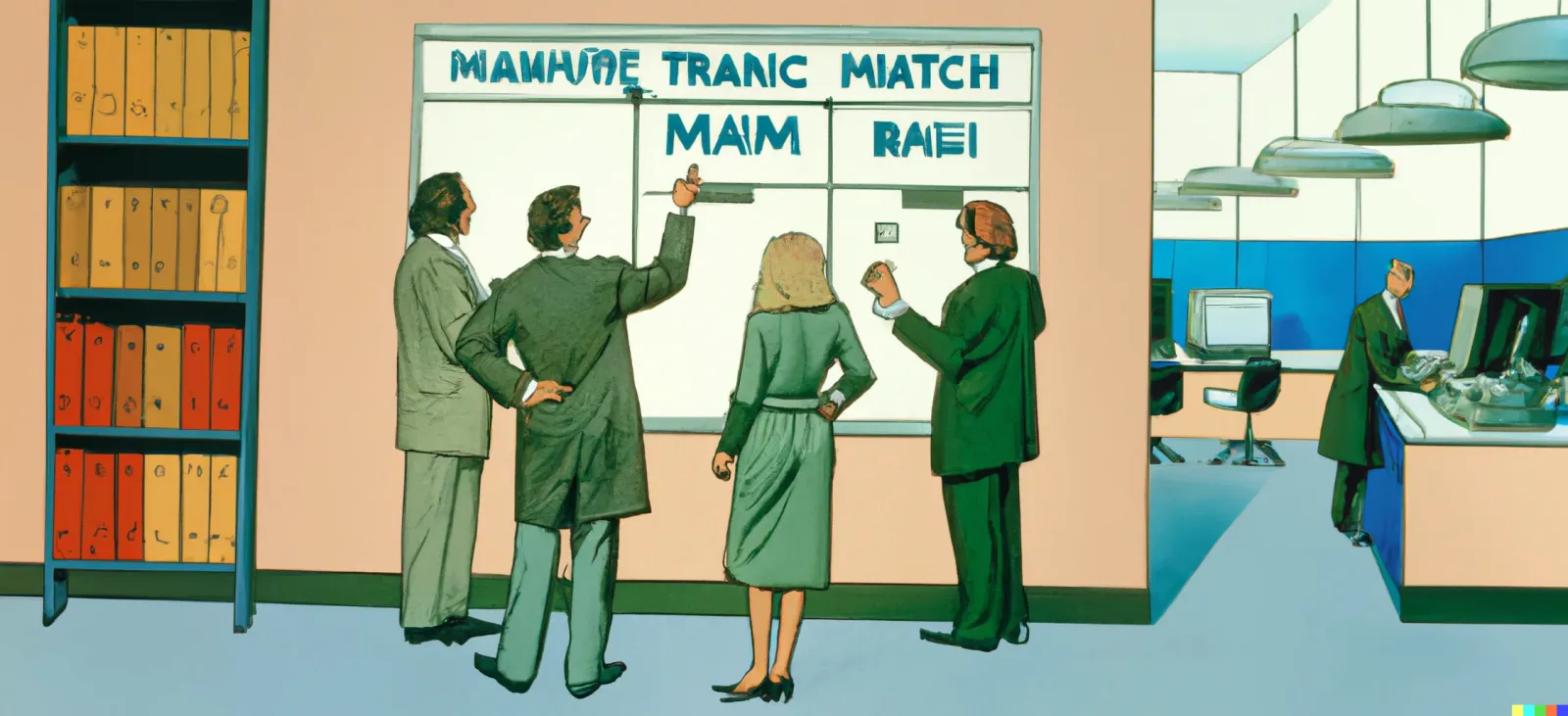During my brief stint in consulting, I struggled to understand my colleagues
When I joined, I had quite a few years in banking under my belt, so I considered myself capable of having a meaningful professional discussion. That turned out to be a challenge when I worked in consulting firms. My colleagues would often tell me things that verged on making sense, but yet eluded it. It was very frustrating.
For example, while discussing how we would approach an RFP (read “a room full of people arguing about slides”), the partner would chip in: “Make sure you list all our enablers that would drive our delivery here”.
“What the hell is an ‘enabler’?” I thought to myself. I understood the words in the sentence. I understood that we should put some list on a slide, but a list of what exactly?

Later it was explained to me that an “enabler” is either:
- a tool,
- a capability,
- knowledge,
- professional network,
- or a method that uniquely supports the team in their work.
A definition so broad that it’s useless. But apparently not to the firm and here’s why.
Communication that exploits your cognitive fallacies
We all share a certain cognitive fallacy: if you take something very abstract or ill-defined and give it a name, we begin to perceive it as something concrete and distinct — even if it’s not concrete and doesn’t need a separate name! The fallacy is known as reification or “the fallacy of misplaced concreteness”.
In the example with the “enablers,” we’ve taken something mundane, gave it a separate name, and made it seem like it’s something our competitors might not have. It’s a classic move best portrayed by Jon Hamm in the “It’s toasted” scene in Mad Men.

The truth is that everyone uses tools, everyone has capabilities, knowledge, and a professional network. Everybody has their own methods of work. It is distinctly not a unique value proposition. But if we call it “enablers” maybe on the surface it might seem like one…
That’s why smart clients would actually grill us on these things:
- How are your methods better than that of your competitors?
- What knowledge do you have exactly?
- What are your tools? etc.
Reification as a business strategy
The use of reification in consulting doesn’t stop with simple PowerPoint parlor tricks. Consulting is an industry that has to constantly justify its existence. Which they do by claiming to be experts in the new relevant thing (sometimes by inventing the new relevant thing):
- PwC in the early 2000s apparently were experts in building online banks → see WSJ article.
- Around 2004 every consulting firm seemed to be experts in Basel 2 and it continued for roughly 15 years up to Basel 4.
- During the Global Financial Crisis, they seemed to be experts in financial restructuring, regulatory compliance and risk management → see this FT article.
- Sometime after they have invented “Cyber” (a concept distinct from cyber-risks or cybersecurity) to sell access rights audits.
- When it became evident that tech companies have done something right and are now muscling in on “traditional” businesses, the consulting company Capgemini coined the term “digital transformation”.
- Now “AI” is a thing. 😒
So, is there a pattern to this madness? How do they do it?
A basic and flippant example
One pattern that I’ve noticed relies heavily on reification and arbitrary invention of new concepts and words. It goes something like this:
- Say, you are a partner at a management consulting firm, and you have mostly worked for paint manufacturing companies.
- What’s this?! A new trend is sweeping the world: wearing socks is cool now!
- You have zero knowledge about socks. You think you might have seen an intern wear them with those Adidas pool slippers once.
- More importantly, though: how do you make money out of it?

- You notice that some people wear purple socks, and from your previous experience in paint manufacturing, you know that “purple” is a color. You see a link.
- You fire up your “thought leadership” machine and make sure to post articles and blog posts about people wearing purple socks, which you now call the “Purple Hosiery Leveraging Strategy” or “PHLS” for short.
- You invent auxiliary terms like PHLS Leadership, PHLS Best Practices, PHLS Governance, and PHLS Risks. Now it’s a whole thing at which your clients can compete! It’s a bit like Pokémon for senior executives.
- At a golf game with a CEO you ask them what’s their PHLS? They suggest you schedule something to discuss. You’re in!
- You supplement this with a few chosen data points where the sales of purple socks are stronger than average. You highlight how purple socks — nay — PHLS is different from your simple sock market.
- Hey look, who’s that at the front of the PHLS hype train? Oh, it’s you! With your prophetic thought-leadership and purple-relevant experience from your paint manufacturing engagements. All aboard!
Or to summarize it in a slide-compliant way:
Consulting companies use reification and “thought leadership” as a strategic tool to: create superficially new markets for themselves, inflate the perception of their expertise in those markets, generate urgency with their potential clients, and make it difficult to compare their offering with that of their competition.
Now, don’t get me wrong: there are pockets of deep expertise in consulting. The more concrete the knowledge of your subject-matter experts, the less reification you need. Your value-add in this case is pretty tangible.
And it’s an art form — it’s hard! — to take some complex subject-matter, distill it into its key essences and put it on a slide in such a way that everybody gets it, and nobody falls asleep.
But both of those things need to align: specific expertise needs to be there and only then the ability to communicate insights. Preferably, there needs to be skin in the game in some form or the other. Unfortunately, that alignment is rarely there. Especially for the more “strategic” services, where the consultant’s willingness to implement their advice might come only with a very nervous NDA.
Enter ChatGPT
Finally, let’s talk about AI, because it is a very hot topic. Management consulting firms have nothing to do with it. They are trying to get involved, and thus it is a prime candidate for a dash of reification.
Consider the MIT Sloan Management Review article “Building Robust RAI Programs as Third-Party AI Tools Proliferate”. It is a MIT research initiative sponsored by BCG on “Responsible AI”. It is called “RAI” for short, because of course it is!

If you pick out the factual statements from the article, you get some interesting insights:
- Most companies use third-party AI tools and not their own
- LLMs tend to hallucinate → risky!
- Somebody has already tried suing because of something a chatbot said
- Roughly half of the businesses are working on policies around AI use
- There are cybersecurity, privacy and reputational risks associated with the use of AI
But the insistent bundling of these topics into a bucket labeled “RAI” doesn’t help. And if you consider that BCG also has an AI-themed podcast with MIT (for example, this), the strategy becomes pretty obvious.
Dear BCG, you are not experts in “RAI,” because that’s not a separate thing.
Parting words
I guess, if you need to hire consultants, make sure to grill them on the concrete details. Clarity comes from action. The more they’ve done, the more concrete and clear their communication will be.
For my own work, I will follow the words my first manager told me, when I joined private markets: “I like your results, but can you sound less like a consultant?”